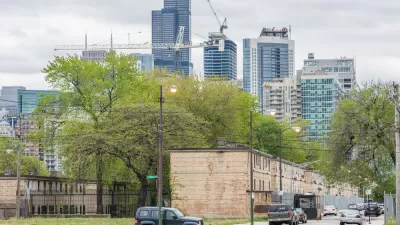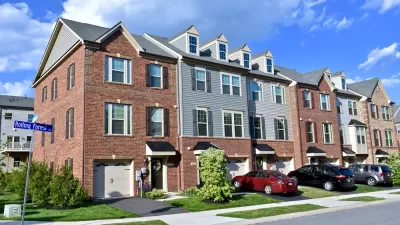This month, changes to Chicago's Affordable Requirements Ordinance (ARO) will go into effect, raising the in-lieu fees developers must pay to opt out of building affordable units downtown.

Following a March City Council vote, Chicago will begin enforcing an updated version of its Affordable Requirements Ordinance (ARO) in October. The existing ARO, enacted in 2003, "requires developers of private residential projects to make 10 percent of their units affordable, or pay $100,000 to a city-run affordable housing trust fund for every unit they do not build."
"The new ARO raises that fee to $175,000 and $125,000 for downtown developers and those who build in higher-income census tracts, respectively, while slashing that price to $50,000 per unit in areas home to mostly low- and moderate-income residents." This will, it is hoped, shift new affordable units to areas where cheap housing is hard to come by.
The rule change has generated some push-back from developers, who cite already-thin margins. However, "affordable units also offer steady income for private developers, who can count on the subsidized rents of their tenants even during dips in the rental market."
Related Companies Midwest president Curt R. Bailey expressed a willingness to work within the new rules: "It's going to make the bar a little higher to build in downtown, but at the end of the day it should produce a better city for us if we have affordable housing downtown."
FULL STORY: Feature> Windy and Affordable

Pennsylvania Mall Conversion Bill Passes House
If passed, the bill would promote the adaptive reuse of defunct commercial buildings.

Planning for Accessibility: Proximity is More Important than Mobility
Accessibility-based planning minimizes the distance that people must travel to reach desired services and activities. Measured this way, increased density can provide more total benefits than increased speeds.

World's Largest Wildlife Overpass In the Works in Los Angeles County
Caltrans will soon close half of the 101 Freeway in order to continue construction of the Wallis Annenberg Wildlife Crossing near Agoura Hills in Los Angeles County.

Eviction Looms for Low-Income Tenants as Rent Debt Rises
Nonprofit housing operators across the country face almost $10 billion in rent debt.

Brightline West Breaks Ground
The high-speed rail line will link Las Vegas and the Los Angeles area.

Colorado Bans No-Fault Evictions
In most cases, landlords must provide a just cause for evicting tenants.
City of Costa Mesa
Licking County
Barrett Planning Group LLC
HUD's Office of Policy Development and Research
Mpact Transit + Community
HUD's Office of Policy Development and Research
Tufts University, Department of Urban and Environmental Policy & Planning
City of Universal City TX
ULI Northwest Arkansas
Urban Design for Planners 1: Software Tools
This six-course series explores essential urban design concepts using open source software and equips planners with the tools they need to participate fully in the urban design process.
Planning for Universal Design
Learn the tools for implementing Universal Design in planning regulations.


























